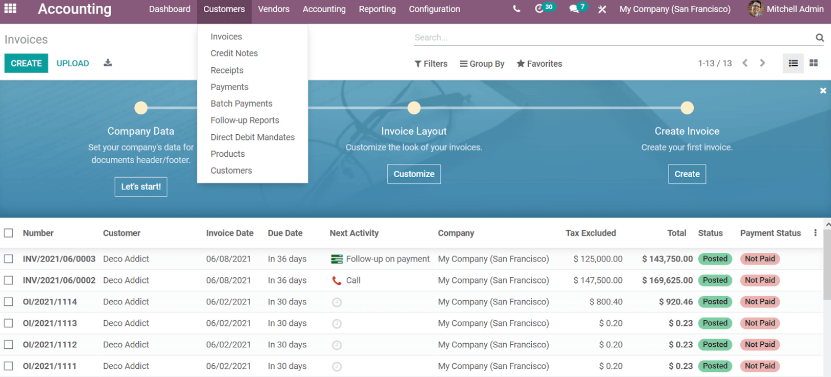Odoo 14 Sales Management
Primary, secondary, and tertiary sales are the most common types of sales in a firm. These are defined based on the sales activities that have been carried out in accordance with the various hierarchies of product sales and procurement. Furthermore, the supply chain operations of a product will primarily involve three counterparts: the product's manufacturer, the company that distributes the product, the retailer, and finally, the end-user, who is normally not considered as a counterpart in business operations despite being a vital link. invoice
The secondary selling operations of a product are easily defined as the trading activity in which the supplier acquires the product from the production facility and distributes it to retail shops in a given region.
Almost all corporate processes were digitized at the turn of the century, and there was a dramatic spike in business management software solutions all around the world. While many businesses and organizations around the world appear to be adapting to the current nomenclature, several underdeveloped institutions were in the donut in the early years but were eventually able to adapt to the newer model.
Today, we have all of the business management operations of the complete company being operated and managed by the business management software solution all over the world.
Furthermore, we have a variety of company management software solutions from which to chose for your business management activities. Enterprise and resource planning tools, in particular, appear to have an extra nudge in the operations.
There is a range of software solutions in this area from which to pick to provide you with total management, sector-specific management operations, and unique applicational demands for your firm. Odoo ERP is one of the software solutions available for total corporate operations management.
What exactly is Odoo?
Odoo is a business management enterprise and resource planning solution that can manage a company's or organization's whole business. The Odoo platform enables it to have a variety of separate application-specific modules of operation, is to blame.
Odoo's centralized structure of operations, along with capabilities from a single platform, enables it to have a distinct central inventory as well as a single central management database.
Odoo was founded in 2005, and the company's first software release was TinyERP software, which was eventually renamed Odoo. Odoo 8 was introduced in 2014 in two unique models, enterprise and community editions. Odoo 14 is now out, and the firm has been releasing a regularized updated version of the platform with increased operational features each year.
Furthermore, the next version of Odoo, Odoo 15, will be released this year, and it is regarded as the fastest and most advanced Odoo to date, with extensive business management capabilities. Let's now look at how we may use the Odoo ERP to successfully handle secondary sales processes.
What exactly are secondary sales? & How can we use Odoo to handle secondary sales operations?
Secondary sales activities occur when a distributor obtains a product from the manufacturer or manufacturing unit and distributes it to the numerous merchants in the region with whom they have business ties.
As a result, the management software that runs the secondary operations must be capable of completely managing the distribution operations of the companies and should be equipped with advanced tools and operational options that allow the operation to run efficiently while also providing the users with management reliability.
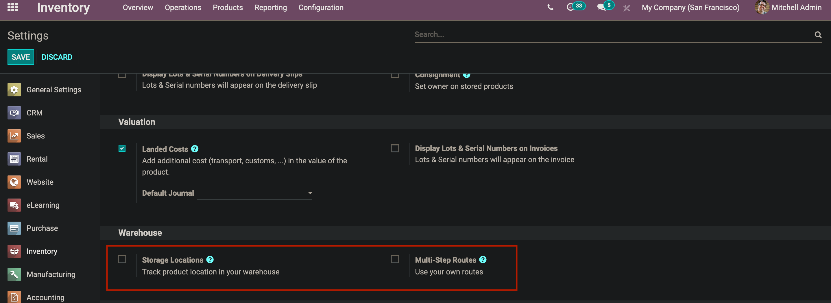
Oversee multiple warehouses
Odoo allows you to easily manage your company's many warehouses. Furthermore, you can design several warehouse sites and control the product transportation operations to ensure that they function smoothly. Furthermore, specific product storage sites in each of the warehouses can be set. Storage location and Multi-step routes are warehousing options that can be implemented to configure the operations of numerous warehouses in the firm.
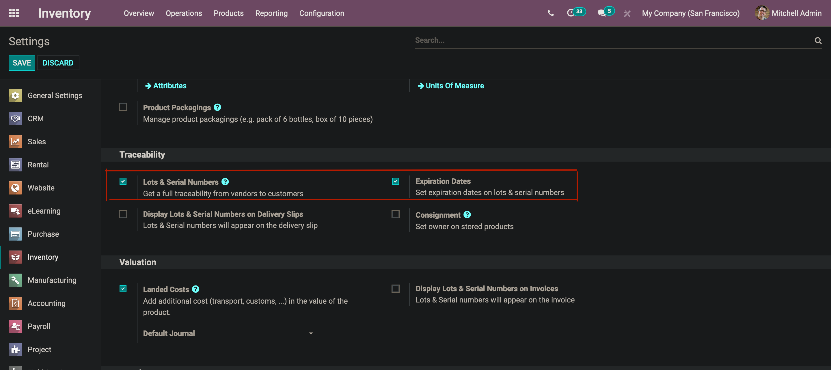
Tracking of Products
The Odoo platform allows you to define product lot numbers and serial numbers, which will be useful tools in terms of product tracking and traceability in the corporate warehouses.
Furthermore, the definition of expiry dates on each of the products, as well as the activities to assign them with lots and serial numbers, will benefit the firm with perishable goods. The traceability options are available in the inventory module's settings menu. You can select the options for doing the traceability procedure here. You can also activate the option to set expiration dates for the products.
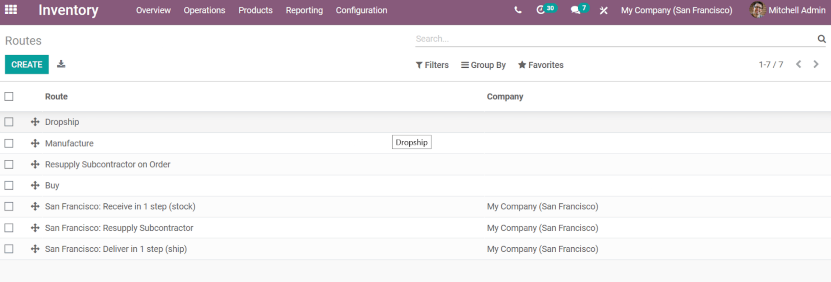
The Route and the Rules
In Odoo, product transfers are carried out in accordance with the rules and routes of operations that have been assigned. Their product move operations rules and routes are adjustable and can be customized based on your inventory operational needs.
Furthermore, these rules can be set for components of product procurement, product movement, sales activities, inventory adjustments, and internal corporate processes involving product movement. Furthermore, the Routes menu in the inventory module allows you to set the routes for product transfers in the Odoo platform.
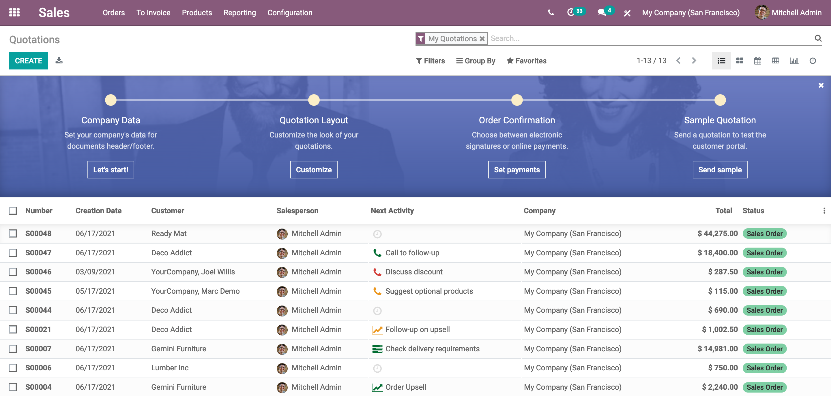
Management of sales
Odoo offers a specialized sales operations management module that will be one of the most valuable and effective tools for any business's sales operation management. In the case of your company's secondary sales operations, Odoo can conveniently perform and manage all sale order, invoicing operations.
The graphic below depicts the sales module dashboard, from which you can browse the various sales management choices.
